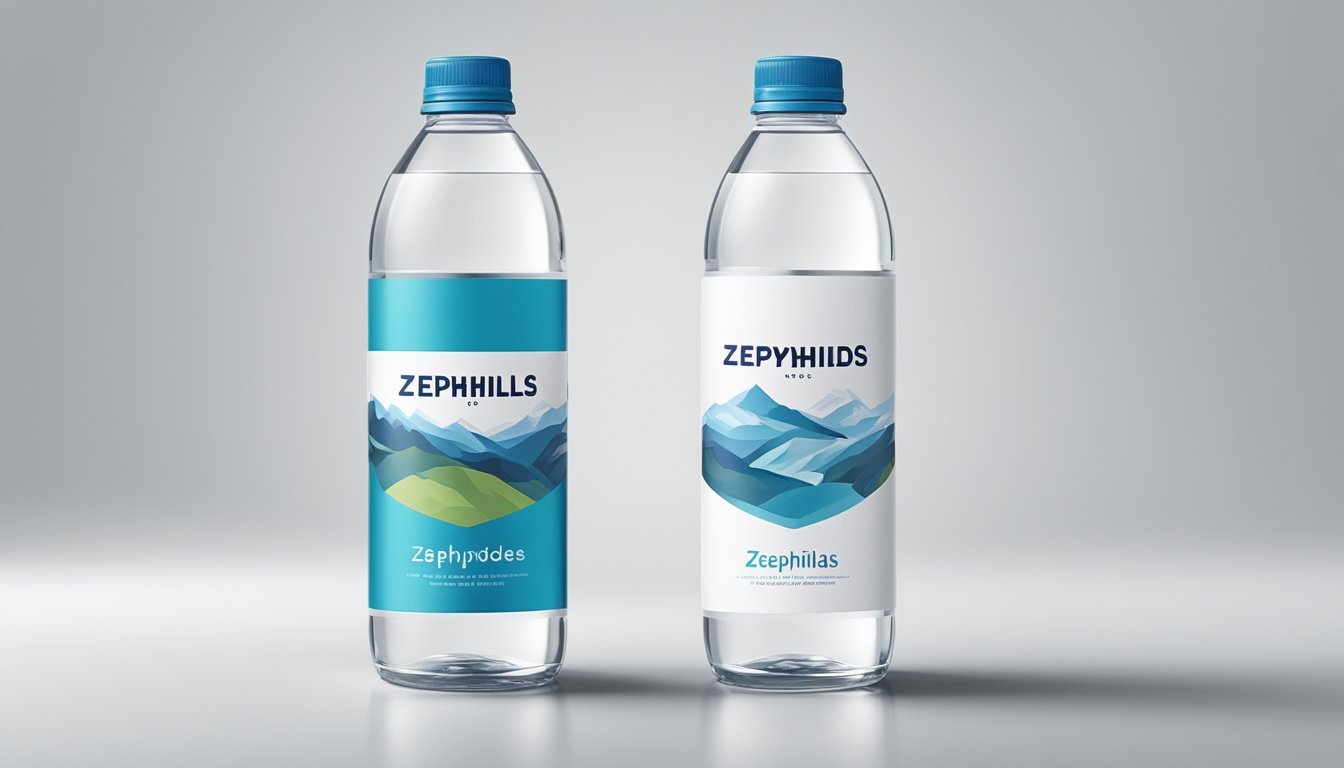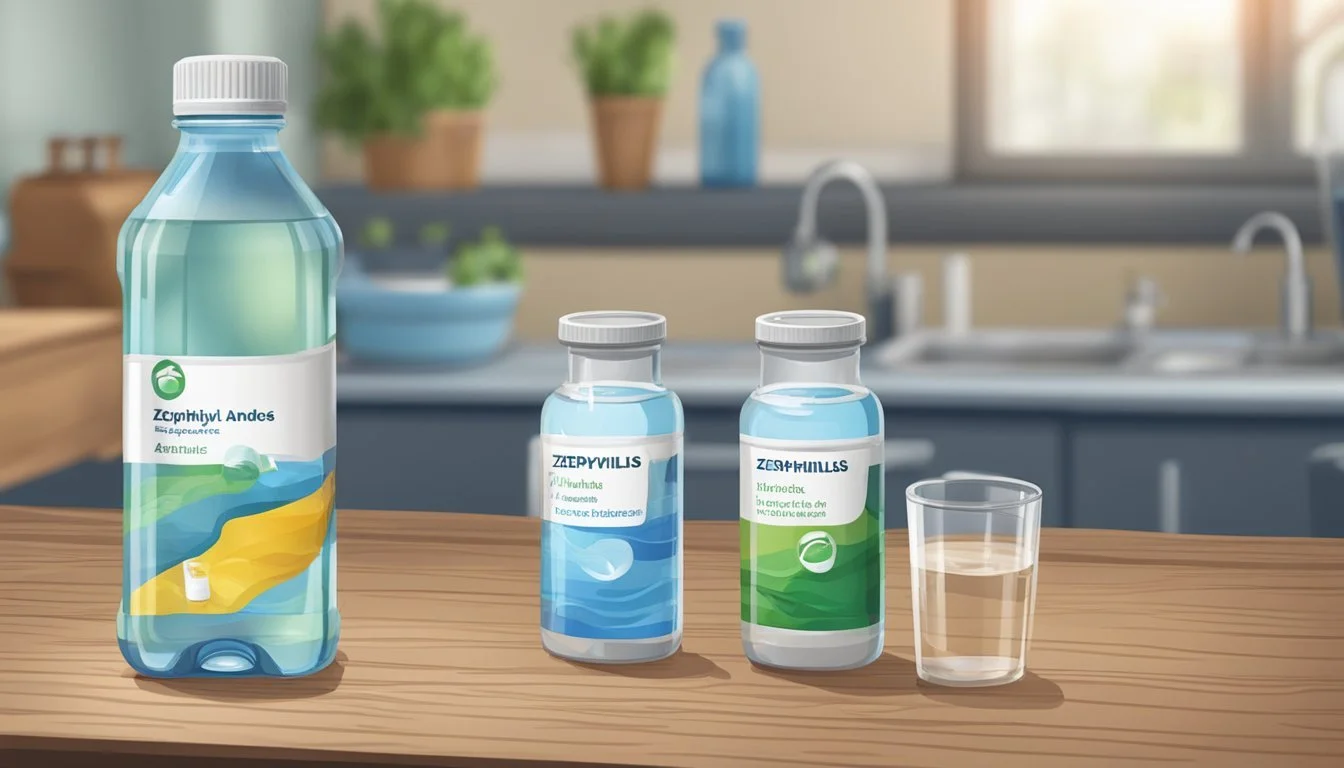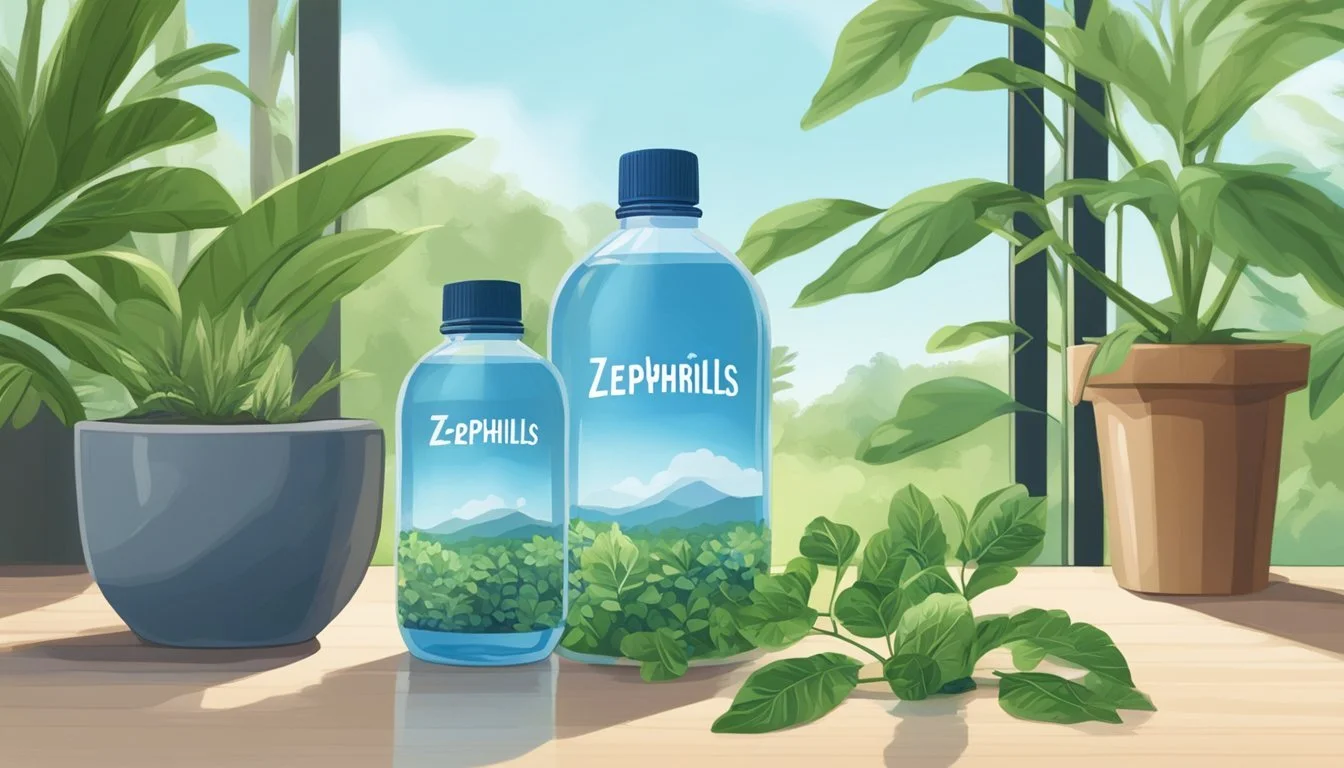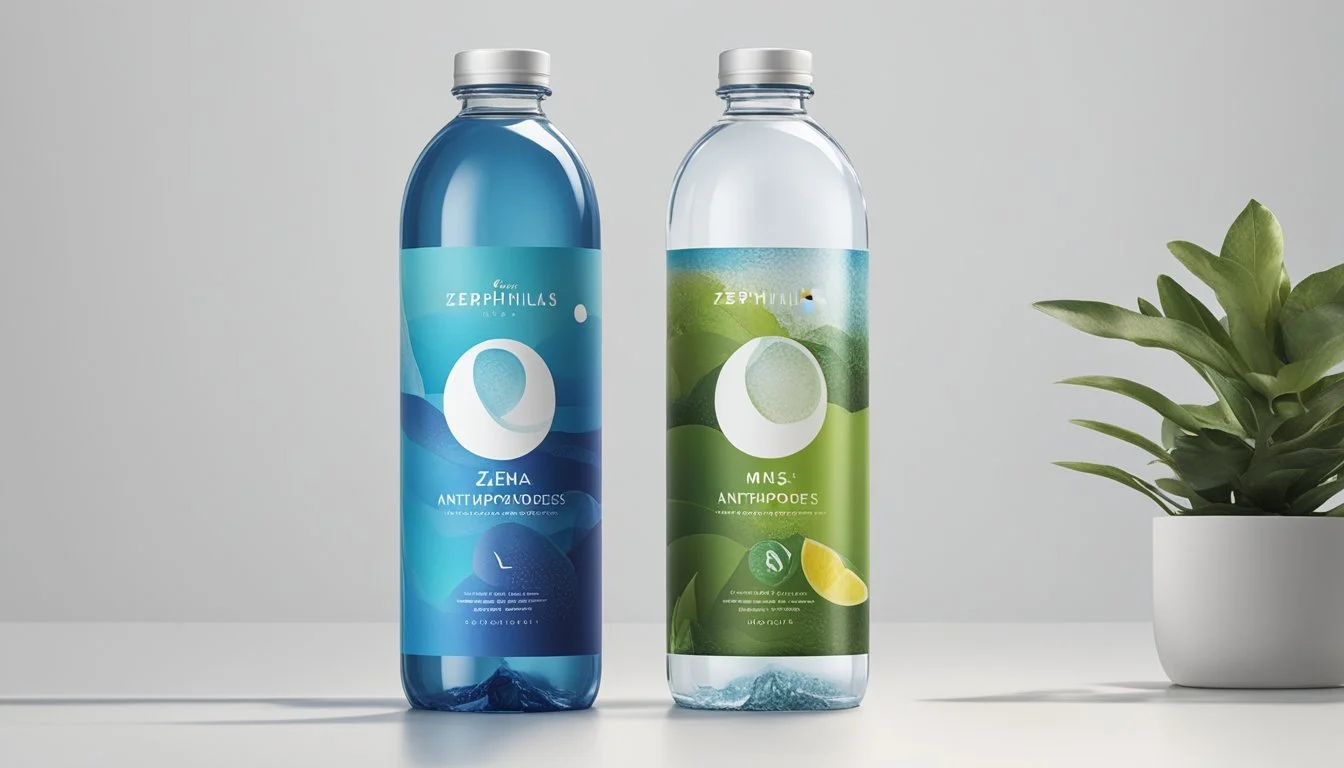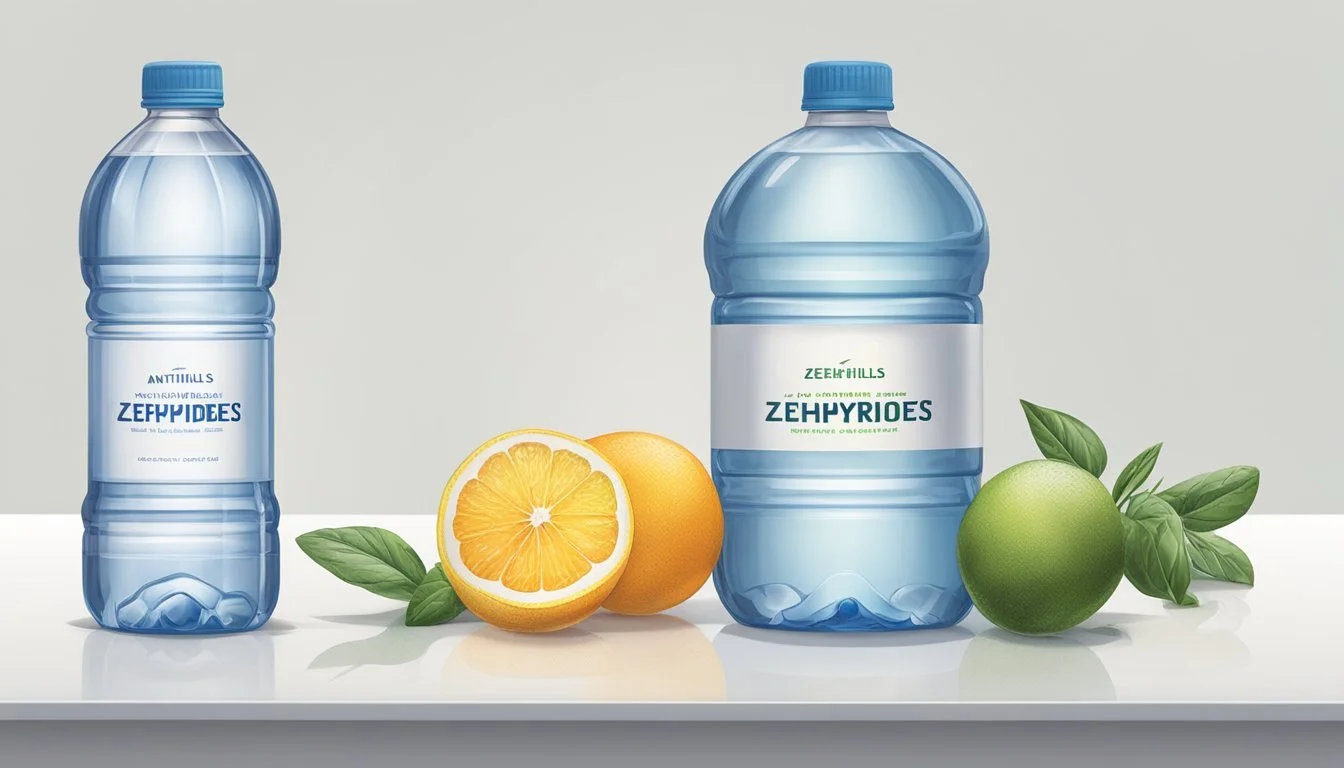Zephyrhills vs. Antipodes
A Comprehensive Bottled Water Comparison
When it comes to selecting the best bottled water, comparing brands such as Zephyrhills and Antipodes can offer valuable insights into taste, quality, and health benefits. Zephyrhills Natural Spring Water is sourced from springs in Florida and is noted for its alkaline pH balance, making it a preferred choice for many consumers who prioritize natural mineral content. Zephyrhills offers good TDS (Total Dissolved Solids) and delivers a refreshing taste that many people find satisfying.
Antipodes, on the other hand, is a premium bottled water known for its ionized alkaline properties, achieving a pH level of 9.5+. This high pH level is believed to enhance hydration and balance within the body, making it popular among those seeking more than just hydration but also additional wellness benefits. The crisp and refreshing taste of Antipodes sets it apart in the competitive market of premium waters.
While both brands cater to hydration needs, the choice between Zephyrhills and Antipodes ultimately depends on personal preference and specific health considerations. Those who favor natural spring water might lean towards Zephyrhills, while individuals interested in the potential benefits of ionized water may prefer Antipodes.
The Quest for Quality
In comparing Zephyrhills and Antipodes, several key quality factors such as water purity, mineral content, and contamination risks are essential. Both brands claim high standards, but the specifics of their sources and processes provide more insight into their quality.
Defining Water Purity and Quality Standards
Water purity and quality are regulated by several entities, including the EPA and FDA. These organizations set standards for contaminants and overall safety. Purity refers to the absence of harmful contaminants like bacteria, heavy metals, and chemical pollutants. Quality often includes the balance of beneficial minerals such as calcium and magnesium.
Purity standards ensure the water is free from harmful substances. Quality standards, on the other hand, look at the overall mineral content and taste.
Zephyrhills Water Source and Quality
Zephyrhills water sources are natural springs in Florida. The water undergoes a multi-step purification process involving filtering and mineral balance adjustments. This water is rich in natural minerals and adheres to strict EPA and FDA standards.
Zephyrhills water includes essential minerals such as calcium, magnesium, and potassium. These contribute to both health benefits and taste. The adherence to high quality and purity standards ensures it remains free from impurities.
Antipodes Source and Extraction Process
Antipodes water comes from deep artesian aquifers in New Zealand. The extraction process ensures minimal contamination. Antipodes water is known for its natural alkalinity and high mineral content, contributing to its distinct flavor profile.
The water is tested rigorously to ensure compliance with international quality standards. Its naturally high pH level, typically around 7.8 to 8.0, indicates a lower acidic content, which is often preferred by consumers for its smooth taste and potential health benefits.
Taste and Mineral Content
The taste and mineral content of Zephyrhills and Antipodes bottled water offer significant differences influenced by their unique sources and treatment processes. This section explores how calcium, magnesium, sodium, and other minerals contribute to their distinct flavors.
The Role of Minerals in Flavor
Minerals such as calcium, magnesium, and sodium play a crucial role in the flavor profile of bottled water. These naturally occurring elements balance the water's pH and enhance its taste.
Calcium provides a slightly sweet taste.
Magnesium adds a bitter note.
Sodium typically gives a salty flavor.
Potassium also affects the overall mineral flavor.
The combination of these minerals can create a complex and pleasant drinking experience, making some brands stand out more than others.
Zephyrhills vs. Antipodes Taste Comparison
Zephyrhills water originates from Florida springs and undergoes an extensive purification process. The taste is clean and pure, with a neutral mineral profile. Some drinkers might notice a mild, sweet aftertaste due to its balanced mineral composition. Calcium and magnesium present in moderate amounts contribute subtly to the flavor.
Antipodes is sourced from deep aquifers and is recognized for its crisp, clean taste with a subtle mineral finish. The high standards of purity ensure it maintains a refreshing and smooth flavor. Consumers often highlight its slightly sweet taste, attributed to the naturally occurring calcium and magnesium.
Health and Hydration Benefits
Understanding the health benefits and hydration properties of Zephyrhills and Antipodes can help consumers make an informed choice. This section breaks down key aspects like hydration, electrolytes, and comparative health advantages for both brands.
Hydration and Electrolytes
Zephyrhills water, sourced from natural springs in Florida, is valued for its balanced mineral content. This natural sourcing ensures a steady supply of essential electrolytes such as calcium, magnesium, and potassium, which are crucial for maintaining hydration levels and overall bodily functions. The pH level of Zephyrhills typically falls around 7.7, indicating slight alkalinity, which can be beneficial for those seeking neutral or alkaline water options.
Antipodes, sourced from deep aquifers in New Zealand, is recognized for its purity and low mineral content. This makes it an excellent choice for individuals seeking minimally processed water. The brand emphasizes a high pH level of around 8.0, contributing to its alkalinity. This slight alkalinity can aid in neutralizing body acidity, offering additional health benefits and supporting balanced hydration levels.
Comparative Health Advantages
When comparing health benefits, Zephyrhills stands out for its natural electrolyte content which supports hydration and essential bodily functions. The presence of naturally occurring minerals can aid in muscle function and maintaining hydration balance, making it suitable for daily consumption and active lifestyles.
On the other hand, Antipodes's high pH level and incredible purity make it a strong contender for those prioritizing alkalinity. Some evidence suggests that alkaline water may help neutralize acid in the bloodstream, which could enhance metabolic efficiency and improve bone health. Furthermore, the minimal treatment process of Antipodes ensures fewer additives, making it an appealing option for consumers looking for unadulterated water sources.
In summary, both Zephyrhills and Antipodes offer distinct health and hydration benefits, catering to different preferences and needs.
Environmental Impact and Sustainability
Antipodes and Zephyrhills have distinct environmental impacts and sustainability efforts, particularly in their bottle production and recycling practices as well as water extraction and ecosystem preservation.
Bottle Production and Recycling
Antipodes uses glass bottles which are highly recyclable. Glass production, though energy-intensive, results in a product that can be recycled indefinitely without loss of quality. This reduces the need for raw materials and aligns with sustainability goals.
Zephyrhills, on the other hand, predominantly uses single-use plastic bottles. While the plastic they use is recyclable, the rates of plastic recycling are significantly lower than those of glass, presenting a challenge to their environmental impact.
To address sustainability, Zephyrhills has committed to using recyclable materials and improving plastic recycling rates. They have also started incorporating recycled plastic (rPET) into their bottles. Both brands are making strides, but the route of pursuit clearly differs in materials and recycling strategies.
Water Extraction and Ecosystem Preservation
Antipodes sources its water from a deep aquifer in New Zealand, which undergoes natural filtration. This method ensures minimal environmental disturbance. Their operations focus on maintaining the integrity of the water source and surrounding ecosystem.
Zephyrhills sources water from springs located in Florida. They have introduced measures to monitor and mitigate the environmental impact of their water extraction. They collaborate with local authorities to ensure ecosystems are preserved and water sources are not depleted.
These efforts show that both Antipodes and Zephyrhills are committed to sustainable practices. Yet, their approaches to minimizing environmental impact vary significantly, reflecting differing priorities in natural resources management and ecosystem health.
Packaging and Accessibility
This section examines the packaging design and distribution of Zephyrhills and Antipodes to help readers decide which bottled water offers better convenience and accessibility.
Convenience and Bottle Design
Zephyrhills' primary packaging consists of plastic bottles, which are known for their lightweight nature, making them easy to carry around. The design is practical and functional, fitting easily into most cup holders, which is convenient for those on the go.
Antipodes, on the other hand, uses glass bottles as part of its premium branding. The glass packaging provides a more luxurious feel and is often preferred by those concerned about the environmental impact of plastic. However, glass bottles are heavier and more fragile, making them less practical for travel but more suitable for upscale dining or events.
Both brands have clearly distinct design philosophies that appeal to different user needs. Zephyrhills prioritizes practicality and ease of use, while Antipodes focuses on aesthetic appeal and environmental considerations.
Global Distribution and Availability
Zephyrhills enjoys widespread availability, especially throughout the United States. It is commonly found in supermarkets, convenience stores, and even vending machines, ensuring easy access for consumers.
Antipodes has a more niche market presence, often found in high-end restaurants, specialty grocery stores, and online retailers. Its distribution is more limited compared to Zephyrhills, reflecting its premium status. While it may not be available in every local store, global availability through online platforms ensures that dedicated consumers can still access it.
In summary, Zephyrhills’ extensive distribution network makes it more accessible for everyday use, whereas Antipodes caters to a select market with its premium positioning.
Price Comparison and Affordability
When choosing between Zephyrhills and Antipodes bottled water, understanding the price and affordability of each brand is crucial for making an informed decision. This section explores the cost-effectiveness for consumers and compares premium vs. value brands.
Cost Effectiveness for Consumers
Zephyrhills is known for its competitive pricing, making it a popular choice for those seeking quality spring water at an affordable rate. It often comes in multi-pack options, offering bulk savings. This brand’s pricing generally falls in the lower range of bottled waters, making it accessible to a wide range of consumers.
Antipodes, on the other hand, is a premium brand, typically priced higher due to its unique source and bottling process. This water is marketed towards consumers who are willing to pay more for perceived quality and exclusivity.
In terms of cost per bottle, Antipodes often costs significantly more than Zephyrhills, making it a less budget-friendly option.
Premium Water vs. Value Brands
Value Brands like Zephyrhills provide decent quality water at a fraction of the cost of premium brands. These waters are efficient for everyday hydration needs without putting a strain on the budget. They are ideal for bulk purchases and for those who prioritize savings over luxury.
Premium Waters like Antipodes cater to a market that values high-end, aesthetically pleasing products. These brands often emphasize features like pH balance, mineral content, and the pristine nature of their water sources. The higher price point reflects these attributes, and such options are often found in upscale retail locations or specialty stores.
In summary, while Zephyrhills offers affordability and practicality, Antipodes targets a more exclusive market segment that prioritizes premium attributes over cost-efficiency.
Regulations and Certifications
Ensuring the safety and quality of bottled water involves stringent regulations and certifications. Both Zephyrhills and Antipodes maintain high standards to ensure compliance and consumer trust.
Ensuring Compliance with Health Standards
Zephyrhills and Antipodes must adhere to numerous health standards. Zephyrhills, being natural spring water, follows FDA guidelines for contaminants to ensure purity.
Antipodes, renowned for its purity, also meets FDA requirements. It undergoes rigorous testing to match the safety standards set by the Safe Drinking Water Act. Both brands align with the Environmental Protection Agency (EPA) standards before purification processes begin. Consistency in adhering to these regulations ensures that both brands provide safe drinking water.
Certification Bodies and Water Safety
Various certification bodies oversee the safety and quality of bottled water. The International Bottled Water Association (IBWA) plays a crucial role. IBWA members, including Zephyrhills and Antipode, must comply with the IBWA Bottled Water Code of Practice.
This code includes annual, unannounced plant inspections by an independent party. Both brands undergo thorough checks to meet these certifications, further guaranteeing safety standards. Adhering to these strict regulations and obtaining certifications reinforces the credibility and quality of Zephyrhills and Antipodes bottled water products.
Brand Profiles and History
Zephyrhills and Antipodes are renowned for their distinct approaches to offering premium spring water. Zephyrhills embodies American heritage, while Antipodes brings a touch of New Zealand's pristine environment to bottled water enthusiasts.
Zephyrhills: A Story of American Spring Water
Zephyrhills was founded in Florida, USA, and is celebrated for sourcing its water from the natural springs in the state. The brand emphasizes maintaining the natural purity and mineral content of the water, which is often a key selling point for consumers.
Zephyrhills first gained popularity in the mid-20th century. Since then, it has grown significantly, reflecting its strong foothold in the American market. The water is renowned for its crisp, clean taste, credited to the naturally occurring minerals from the Floridian springs.
Its dedication to sustainability is evident in its efforts to reduce plastic use and its commitment to environmental initiatives. Zephyrhills continues to be a staple in American households, symbolizing the essence of natural spring water from the USA.
More About Zephyrhills
Core Hydration vs Zephyrhills: Which Bottled Water is Better?
Icelandic Glacial vs Zephyrhills: Which Bottled Water is Better?
Mountain Valley Spring Water vs Zephyrhills: Which Bottled Water is Better?
Nestle Pure Life vs Zephyrhills: Which Bottled Water is Better?
Poland Spring vs Zephyrhills: Which Bottled Water is Better?
San Pellegrino vs Zephyrhills: Which Bottled Water is Better?
Zephyrhills vs Aqua Carpatica: Which Bottled Water is Better?
Zephyrhills vs Cascade Mountain: Which Bottled Water is Better?
Zephyrhills vs Crystal Geyser: Which Bottled Water is Better?
Zephyrhills vs Hawaii Volcanic: Which Bottled Water is Better?
Zephyrhills vs Hawaiian Springs: Which Bottled Water is Better?
Zephyrhills vs Kirkland Signature: Which Bottled Water is Better?
Zephyrhills vs Purely Sedona: Which Bottled Water is Better?
Zephyrhills vs Richard's Rainwater: Which Bottled Water is Better?
Zephyrhills vs Solan de Cabras: Which Bottled Water is Better?
Zephyrhills vs Talking Rain AQA: Which Bottled Water is Better?
Zephyrhills vs Whole Foods 365: Which Bottled Water is Better?
Zephyrhills vs Whole Foods Italian Still Mineral water: Which Bottled Water is Better?
More About Antipodes
Antipodes vs Cascade Mountain: Which Bottled Water is Better?
Antipodes vs Hawaii Volcanic: Which Bottled Water is Better?
Antipodes vs Kirkland Signature: Which Bottled Water is Better?
Antipodes vs Richard's Rainwater: Which Bottled Water is Better?
Antipodes vs Solan de Cabras: Which Bottled Water is Better?
Antipodes vs Talking Rain AQA: Which Bottled Water is Better?
Antipodes vs Whole Foods 365: Which Bottled Water is Better?
Antipodes vs Whole Foods Italian Still Mineral water: Which Bottled Water is Better?
Hawaiian Springs vs Antipodes: Which Bottled Water is Better?
Icelandic Glacial vs Antipodes: Which Bottled Water is Better?
Mountain Valley Spring Water vs Antipodes: Which Bottled Water is Better?
Nestle Pure Life vs Antipodes: Which Bottled Water is Better?

